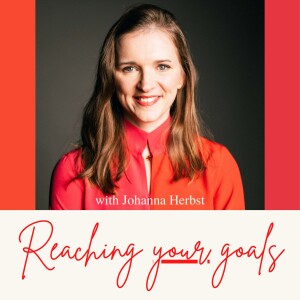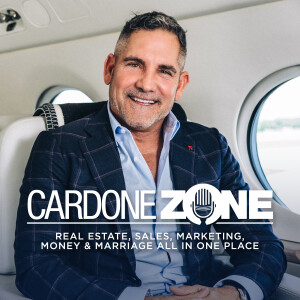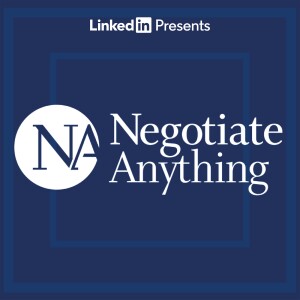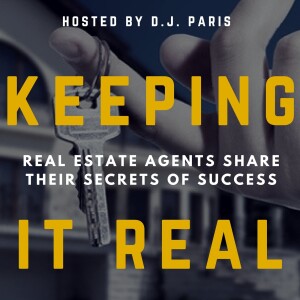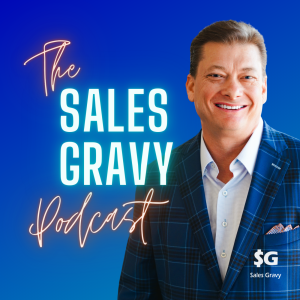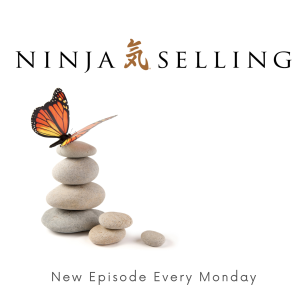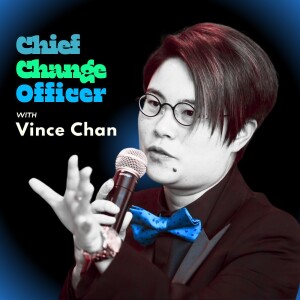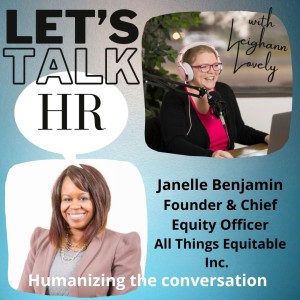

Episode 3 - Janelle Benjamin - DEI Specialist
Janelle Benjamin is an amazing woman with an even more amazing story of how she came to run her own business. While her story is amazing it is not necessarily a fair or happy one, but one that we should all learn from. There is something to be said about the hard moments in life that set us on the paths that we are meant to be on. Janelle has defiantly found not only her path but becomes someone that this world needs more of. As a DEI expert, advocate and trained lawyer Janelle has a true understanding of people and the compassion and empathy we all need.
Leighann Lovely 00:15
If you are an HR professional business owner, or at the operations level trying to understand what people want, you may be struggling. Our systems have been shocked. practices have been question and culture is the leading conversation. Let's learn how culture is created, sustained, and why it should be the leading conversation when discussing hiring, training and retention. This is the foundation of any business and it's time to address it. So tune in to Let's Talk HR humanizing the conversation. We tackle topics that influencers of change need to understand and struggle to overcome every day, such as where to start, and what the new workforce wants and how to attract and keep positive momentum going. I'm your host Leighann Lovely
Leighann Lovely 01:02
Janelle Benjamin is the founder and Chief Equity Officer of All Things Equitable Inc., using her lived and professional experience to help companies affect systematic change. A trained lawyer Janelle is no stranger to the Diversity, Equity and Inclusion space, having investigated complaints at the Ontario Human Rights Commission advised professional regulators on fair registration practices for highly skilled newcomers led corporate DEI initiatives and implemented groundbreaking legislation programs like the Accessibility for Ontarians with disability acts 2005. I'm so excited to talk with Janelle she's an amazingly talented, brilliant, and wonderful woman, and I'm just thrilled to have her on the podcast today. Janelle, thank you so much for being here. I'm very excited about having this conversation with you.
Janelle Benjamin 02:04
Thank you so much for having me, Leighann. It's a pleasure to be with you on your podcast.
Leighann Lovely 02:08
So why don't why don't we jump right in? Tell me a little bit about yourself.
Janelle Benjamin 02:13
Thank you for asking. I am a Diversity Equity and Inclusion practitioner from Toronto, Canada, a management consultant. So I support organizations and their leadership to create equitable, inclusive workplaces, right. So they've got issues of diversity, how to diversify their workplace, how to create experiences of inclusion, belonging, make people feel welcome in the workplace, or just achieve equitable solutions, right? Whether that's pay equity, or gender equity, racial equity, you name it, I support them with a variety of training and consulting work.
Leighann Lovely 02:53
That's, that's awesome. And so needed right now. In in the world. So you are actually the founder and CEO of all things equitable management consulting firm. So how did you come to, I guess, become the founder of this organization? You know, what launched you into doing that?
Janelle Benjamin 03:16
Yeah, there was a few things, it was a combination of factors. I was laid off in a pandemic, you know, starting to compete for jobs with the rest of the world, found a fantastic job that I thought was great, closer to home, and $40,000, less salary. But I still took it because I thought, okay, you know, here's the job, it's closer to home higher level than the position that had just previously laid me off. I was really, really excited to begin, it was in a field that I totally love working for, you know, another issue of inclusion and a really, really important entity, eight minutes down the road from my home that I'd been previously commuting about an hour and a half for, you know, four years to another organization. So I thought, okay, eight minutes down the road, $40,000 less, but you know, work life balance, I'll be closer to home closer to my kids. And still, you know, at a director level, right, I had just been a manager before, but at least I can be doing something meaningful to support a community that I truly love and hold dear. And then the opportunity was rescinded. Just on the eve of the pandemic. It was heart wrenching. But what was more heart wrenching was that they didn't. They didn't say, Well, you know, we'll revisit your application at the point where we can reopen the the world. Instead, they blamed it on me. They said that, you know, it was because I was negotiating for myself that, you know, the opportunity was being rescinded. I was asking for too much as a woman. You know, I was being greedy to say, well, you know, your range is like $40,000 below my last salary, is it possible that I could start at the top of your range and not the very bottom. And the fact that and then range was minuscule, the fact that I had suggested that it's just over the top and too much for them, right? It shouldn't be negotiating for myself. So that started me back, you know, now looking for work with the rest of the world. And feeling just heartbroken. You can't even imagine starting to look for jobs, again, putting my application out there. And then, you know, George Floyd is murdered, still, you know, not thinking about entrepreneurship. But the very next day when Amy Cooper, the white woman who was you know, walking her dog in the park, and she decided that she was going to call the police on Christian Cooper with a black man who was just birdwatching that lit a fire under me like the combination of being unemployed in a pandemic, George Floyd job offer rescinded and then Amy Cooper, you know, questioning, his belonging in the workplace just totally triggered me. Right. It was taking me back to the you know, the places that had terminated me previously, noting you know, I don't belong there, I don't have what it takes to be in their spaces. And I just thought, okay, here we go again, right, here we go again, with another person telling a black man where he belongs. And I just I was, I was like, Okay, that's it. I'm never I don't want to work for anybody. Again, I'm going to, you know, do my own thing. I've got what it takes, no one's going to tell me where I belong, no one's going to tell me what I'm qualified to do. And I'm just going to work to make the system better, right. Like, we thought George Floyd sparked this sort of global movement, impetus to not just improve police justice, in policing, but just equity in all of our systems, our health systems, our child welfare system, our workplace education, employment systems, right. So we're working on anti black racism and addressing it everywhere. And, and I knew that the experiences that I've had were, you know, sometimes related to me, because I'm a woman, right? Sometimes related to both the intersection of my woman womanhood and my blackness, or the fact that I'm a black woman. And being told, you know, we no longer need you're here, or, you know, thanks, but you shouldn't be asking for more. All of those things were just so dreadfully painful. And I had what it takes, I don't you know, I'm a trained lawyer. I'd worked in, you know, different provincial government agencies here in Canada for a very long time. supporting organizations with their inclusion initiatives, right, I have the skills I've got the stakeholder relationships, the policy development, program development, legal training, investigation of human rights complaints under my belt, so I just thought, Well, what the heck Well, I can have other people can vote, why can't die. So that's sort of the painful journey to the launch of all things equitable.
Leighann Lovely 07:50
I listening to you, I get goosebumps, you know, we are we are a makeup of the experiences that we've had in our life, right. And while my experiences as one a woman, but also very much a white woman, obviously are very different. And I am very much and, and I say this, somewhat ashamed, but very much blind to the experiences of the black community, I don't have any knowledge, any understanding of what you've experienced. But again, because I am, you know, a product of my own experiences, to the same effect, nobody could understand what it's like to have a mental health disorder growing up, and being discriminated, you know, for that. But this is definitely everything that you just explained, everything that you went through, you know, on an emotional side on a logical side on, all of that is so valid, and things that we need to as a society address, have empathy for have, you know, conversations around and about, because we can only understand the things that we've experienced, but we have to understand that we now have to try to put ourselves in the shoes of others to try to look through the glass, you know, with the eyes of others, in order to be more open and more understanding that yeah, we're not doing we're not doing everything that we can do in order to create a, you know, inclusion and diversity and all things equitable society, right. Yeah,
Janelle Benjamin 09:37
Absolutely, empathy is such a huge part of this inclusion conversation, right. A lot of people don't have the ability to empathize with other people. It's sort of like, you know, just move along. Let's forget about it. You know, pull yourself up by your bootstraps, everything will be well just work as hard as the rest of us and you're not going to have any of these issues. And the reality is that meritocracy, you know that myth is a myth, right? That, you know, society and things that are happening around us just don't impact people differently. Right? The reason that this push for equity is so significant right now is precisely because, you know, there's disparities in our society, right? And there's a power imbalance and a differential that certain groups experience based on their racial identity, right? And if you're, if you are not white, you experience it. And if you are white, you may not right, it's, it's a blind spot that you may have precisely because of, you know, your, your privileged identity, to not have to be experiencing racism, right? So it's hard sometimes for white people to understand what we're talking about when we're saying, this is racism, you know, you're that that horrible, you're playing the race card always comes out or, you know, you say black lives matter and you're fighting for your rights. And then they're, you know, they're gaslighting you and they're saying all lives matter, and you're like, Oh, God, it's so cringy. You know, we're focusing on black lives. And we're talking about the reasons why Black Lives Matter precisely because ours are under attack. Right, we saw what happened recently with the shooting in Buffalo. You know, we saw what happened with George Floyd and ahmaud, arbery, and Breanna Taylor. And, you know, I could go on to, and name so many more, I will do Dr. Lu and Mike Brown. And, you know, the names just don't stop. And for people to sort of, to say, well, let's just negate all of that, forget all of that. Forget that, you know, the police are disproportionately killing, you forget that they're disproportionately arresting, you forget that they're, you know, disproportionate, you know, that more of your men, more black men are in prison, right then are employed in the United States. And at home with their families. That is a very troubling statistic. And we're talking, you know, I'm in Canada. But I use the data coming out of the states precisely because we don't collect race based out here in Canada. Very bizarre. But bizarre, but not right. Like, it makes sense. In a system where people, people are uncomfortable. When you call things out, they rather kind of hide it under the rug, and all those problems are happening in the States. And not here, right? Because your your data looks so, so pristine, and you don't actually have any information that you're collecting. But it's important that we start to gather the information to tell us what we need to do to make those systemic improvements here. And thankfully, organizations are getting on side, you know, the ones that are working with me are really working hard to change things to do better, to be better to be, you know, supportive allies, which is exactly what we need, right? We need people with the power and privilege in our, in our society, to start to spread the wealth a little bit, right. That's what equity is all about. Achieving it for other groups means that, you know, we can't, we can't continue to operate in a system that tells us that whiteness is supreme as if it's not really having impacts on us. All right, it is. It's causing so much harm and disparity in our society in so many different ways in treatment and, and in outcomes, how people are actually faring in our society is a direct correlation to the racial identity. So yeah, it's important to talk about it.
Leighann Lovely 09:37
Absolutely. And here's what I don't understand. And this actually, before I go on that thought, I want to go back. Because I want to, I want to make sure that I address something that you you started off with saying, first, when you we the offer was rescinded. You said that they're gonna turn around and blamed you. I'm disgusted, and I'm absolutely 100% disgusted by that. Because of the fact that I am my day job is in staffing, I help individuals help you negotiate for what they deserve, what they are worth what they and for anybody listening out there, there is absolutely nothing wrong with going and negotiating on your behalf for what you are worth. And if a company is not willing to come to the table, you know, to negotiate with you, you don't want to work with that company, if they're going to turn around and blame you for, you know, trying to, you know, put a value on what you're able to value or what you're able to bring to them that and for them to turn around and blame you that is is asinine.
Janelle Benjamin 14:49
But what was more inhumane about it was the realization that the very next day after they sent me that communication rescinding the offer, blaming me, the very next day A, they closed their doors down for months, the very next day there was, you know, our entire province went on a lockdown, they must have received notice about it as a, you know, an entity that needed to shut its doors. And instead of saying so sorry, Janelle, the provinces requiring us, you know, because of course, my my start date was from March 31, which was beyond the provincial lockdown, instead of saying, you know, we presented an offer that was requiring you to start on March 31. But we're no longer gonna be open because of this provincial lockdown due to COVID-19. We'll revisit this at a point where we're able to reopen, we're so sorry, I would have not been as devastated. Right, but they were so inhumane, as you know, and the reason I was negotiating was I revealed that I had children. I said, you know, I talked to them about the benefits package and waiving the waiting period in order for the benefits to start. I said, you know, I'm currently receiving benefits from my previous employer that had laid me off, I need those benefits for my family, is there any way that we can waive that probationary period and have the benefits start? My direct supervisor that was going to be reporting to senior director, she said, Sure, we'll, I'll take a look at it, I'll take a look at the numbers, we'll see if we can get you to the top of that range, or move you up slightly, at least. So you're not at the bottom. And we'll I'll get back to you on the version of the benefits. And instead, by the time she'd gone to the men that you know, the CEO and the HR leader, who was also a man comes back down that, you know, she's you know, she's asking for too much, right? Like, I'm asking to not start at the bottom of the range of asking for benefits for my kids. And the office, we're sending it and you know, so sad too bad. You're, you're being a little bit greedy here. And instead of telling me that you're closing your doors because of the pandemic, you've blamed me, that was the most disgusting thing, I think, for me, showed you know, and I lambasted them I sent them an email. And I've never done this to any organization ever. I lambasted them I said, you know, how dare you I had round after round of interviews, about four of them met the staff walked around the building, showed me my office, I went and I went shopping, I bought clothes, I did all these grand things that you do you know toasts with your family, when it's like, finally, you got a job, because I was unemployed for almost two years. So I did all those things. And then I wrote them an email, because I was like, How dare you like you, chastise me in round after round of interview? But how inclusive? Are you? And, you know, do you have the right inclusion mindset? And I thought, well, you know, here I am telling you that I've got kids that I'm a woman, I'm negotiating, I'm I'm racialized, and you're questioning my inclusion mindset. And this is your, your, the way that you operate. Right? You're blaming me, I just I let them have it. I couldn't stand it.
Leighann Lovely 17:49
Right, No, and that's right, no, and I coach, you know, employees all the time. And I say, you're, you're never gonna get anything that you don't ask for. Now, there's also there's also the understanding of when negotiations are over, you know, you need to you need to know when they have ended, right? Because I've also had employees who are continuing to push and push and push and push and push, and it's like, okay, negotiations, right, it's, you know, you need to know when you when, you know, when to get up and walk away from the table at this point. But there is, you need to be your greatest advocate, nobody else is going to be that. Sure. So I am sorry, that that happened to you and that they, obviously, the position went away. But the way that they handled that was was horrible. Nobody should be treated that way. And it's no wonder that, you know, I shouldn't say it's no wonder, but I am so glad that you have now started on the path that you have started on. Because yeah, it's necessary in this world. It is 100% necessary. And we need people like you.
Janelle Benjamin 19:06
Thank you so much. Yeah, I'm, I thought, you know, I fought and I advocated in my professional life as a lawyer for so many different people and individuals and groups and things. It's like, why would I not advocate for myself? as well? Why would I not do this professionally? And, you know, see what I can do and affect the changes that I know that I can affect? Independently, right? Instead of waiting for a job, I'm just going to create my own and it's it's definitely worked out. There's lots and lots of clients that I know work with, and I'm quite happy doing this work independently.
Leighann Lovely 19:45
Yeah. Okay, so now jumping back forward, where were we? You are also a speaker and part of black speaker collection. Tell me what this is. And you elaborate on that for me. So I have an understanding of what you know what that's all about.
Janelle Benjamin 20:03
Sure. So through my work with all things equitable, you know, I do consulting, I do training. And oftentimes people invite me to do speaking and keynotes and things like that. And so the Black Speakers collection was a collection that began by a woman by the name of Madison Butler. I believe she's based in the United States, maybe in LA somewhere, she decided, based on lots and lots of, you know, anecdotal information that employers are sharing that, you know, they can't find speakers for predominantly Black History Month events. And not only that Black Speakers are being underpaid, undervalued. You know, we're offering keynotes, we should be being paid the same as our white counterparts. And so she formed the Black Speakers collection to sort of aggregate the number of black speakers around the globe on a variety of issues that we can all speak on. So it's sort of like a one stop shop for employers who are looking for a speaker to come and speak on a particular topic at their events, whether it's, you know, technology or finance, or, you know, anti racism and equity, like I speak on, there's a whole vast collection of people that are highlighted through through the Black Speakers collection, that are really easy to find. It's a searchable database, it allows employers to go and see the the wealth of a range of talent that are out there, and then, you know, present proposals and things to them so that they can come and speak. And it's really compelling us and pushing us as black speakers to, to know what we're worth, to charge what we're worth, and to not undervalue ourselves. So it's sort of win win, right. It's a one stop shop for the employer. But it's also a great place for us to collaborate. There's a Slack channel that we all can talk about our, you know, our engaged, it's just this great collection that allows everybody to hold themselves out as the speakers they are on the topics that are within their own domains and their expertise. And at the same time, allows employers to search and find them to to make those connections so that, you know, you're not having an organization say, Oh, I can't find any, any black speakers. Where are the black speakers? It's like, there's little, there's over, over 2000 of us already in the database within within days of it opening and launching,
Leighann Lovely 22:31
Oh, wow. So I will throw, if you have a link that I can throw in the show notes. So if anybody wants wants to check that out, they can definitely check the show notes. And yeah, check out the database and information on that. So perfect. That is that's awesome. And I did not know that. Again, this is the naiveness of a lot of people out there. But I did not know that there was a struggle for people to find, you know, black speakers. But I guess, you know, when I walk into an event, I'm not, I guess I just I don't notice whether or not the speaker is black or white. I just, you know, walk in and listen to that.
Janelle Benjamin 23:19
Right. But that's the thing when so many people, right. So I should say this properly. So many white people don't notice when they are in the majority, which is all of the frickin time excuse my language, right? Yeah. You're always in the majority, right? But when you're racialized, you notice right away when you walk into a space, and you're the only one there. So and how many times has that happened to me, right? Everywhere I go. I'm always alone, right? To go to university. I'm in a, you know, largely white institution. And in 98% of my classes. I'm the only black woman or the only racialized person if there's other racialized people, they may be brown, they may be, you know, Chinese looking Indian, what have you, but I'm usually the only black one. And sometimes there's there's no other racialized person. And it's really interesting, right that with respect to speakers how this comes up is that you know, you've got panels, right, have always learned people that at this point in time, right, well, we're talking about diversity, inclusion, equity, accessibility for everyone. You go to so many events or conferences and things in every single panel member this usually the men or their, their white men or their white women and black women and, you know, Asian women or our Latino women are largely absent. And that's not because we're not we don't exist, we're not qualified. We're not you know, educated to speak on particular topics. And I think that's what the collection is about. It's getting out At, we can speak on a variety of a broad range of topics. Look how many of us there are globally, you don't have an access problem, right? The website starts by saying at Black Speakers collection.com. It's a community dedicated to closing the wealth gap, solving the pipeline problem and ensuring that we're no longer an afterthought, right? If you want to diversify your panel, right and truly have representation, well, here we are, right comm and make sure that you're, you're doing the right things proactively, to make sure that we're not absent from places where we absolutely shouldn't, could be right? If you want to balance the wealth in society and really create equity than you need to think about it everywhere.
Leighann Lovely 25:40
Yes. And it's you made a really valid point, if I walk into a room and I am the only white person, and it happens rare, very rarely, you know, I live it very rarely. Yeah, but I noticed immediately, and I go oh, okay. Obviously, it's because it happens so rarely for me that I immediately go. Okay, I'm gonna be recognized or noticed immediately I'm I'm right. I am a blonde, really pasty white, blue eyed woman. People are going to know about I assume people are going to notice me because I'm going to stick out. Yeah, the night. Here's another thing that I notice advertisements have have completely changed, you no longer see advertisements with just white people on them. They've, society has finally finally gotten smart. And now they have interracial families. If you have a picture of a family, they now are showing interracial families, they are now showing a variety of races on advertising when they have people on it. Finally, and this just I just started noticing this what over like the last two years. But prior to that, all advertisements where they actually had people on the advertising, it was always white people. It was never it was never interracial. Or rate, you know, it was never representing any other race than than white for the longest time. Yeah, you also see that now in more television shows that are coming up. Where you're seeing interracial couples, you're seeing more diversity in the people who are being cast in TV shows. So it's actually representing more variety of the different races that are there. But first, name one show when you were growing up that had any interracial or that was any interracial couples or friends.
Janelle Benjamin 27:59
Right? Honestly, that was almost impossible. You might, you know, the most interracial shows that I can think of are like the Jeffersons, you know, Georgia and Weezy had like the the white, or sorry, the black woman upstairs, Florence. I think her husband was white. In real life. That was true. That was that's Lenny Kravitz his mother. So you know, it's a true true life story, because Lenny Kravitz is biracial. And I also think about not good times. Sorry. It was the Jeffersons and something else Oh, different strokes, different strokes was, you know, Arnold and his brother Willis, two black children who were adopted by the by Mr. Drummond. He was the rich, wealthy white man. Right. And it was, you know, that kind of comedy, what you're talking about Willis. And he had Kimberly, his daughter, and they will, you know, the there was a rich, wealthy white family adopting the poor, impoverished black children and saving them from the ghetto. You know, other than that, right?
Leighann Lovely 29:02
There wasn't anything. And again, what is that saying? The rich white man saving the poor black boys.
Janelle Benjamin 29:12
Right. And even Jordan Weezy was like, you know, we're moving on up, we, you know, we're, we're rich now because they were drycleaners you know, he had a business and was able to move into this penthouse in the sky, this, you know, elite building apartment building where this black woman was married to a white affluent man, and could afford to live there. Right. So, again, reinforcing some problematic tropes and stereotypes and things about who we are and what we have access to. But it was it was funny, you know,
Leighann Lovely 29:41
Right. And again, I'm not I'm not slamming the, but this, as you know, as a society, we have things have drastically it's changed and we need to now have, you know, for my child for, you know, the children that are being raised, you know, I love my dog. otter right now is it a is a perfect age, she literally is at that age where when she looks at people, she sees no difference. She literally sees no difference she sees. You know, this is the conversation I sometimes have with her. She'll be on a playground. And there was a I'm not exactly sure what their true nationality was. But they did not speak English. This little girl didn't speak English. I could hear her talking to her parents, and she was speaking in another, another language. And she came over to me, she says, Mommy, I'm trying to talk to that little girl. She doesn't talk, right? I said, Well, she speaks another language. She goes, What's that? And um, it's, it's a different dialect. I don't know how to explain this to a four year old. Right? Okay. And I suppose you can still play with her. She goes, Okay, so they just, you know, stare at each other and run around and play. The Innocence of that is it's so pristine, you don't they don't learn that there is a difference or that you know, that there is any difference in them until they go to school. And then children start to, you know, talk, or there's that one instance where a child says something that they heard their parents say, and all of a sudden they come home and they make a comment, you go, Oh, my God, where did you hear that? Like, that's not okay to say. And then you have to start going through that there are different races out there that, you know, yes, children, sometimes they look different. They have different color skins, because, you know, we that's just the way that it is. And then all of a sudden that becomes that learned, you know, thing. But we're not born with the indication that there was anything different between any of us because under that skin under that we're not? There is no difference.
Janelle Benjamin 32:05
Yeah, I would say. But agree with a lot of that, of course, we're not born with a recognition that we're different or expectation that we're different. But studies do indicate that even babies, you're they start to see color, I think as early as three to four weeks. Yeah. And my daughter and most kids, I shouldn't just I want to talk about my own kids. But I'll start with my daughter, my daughter, she just turned four this year. And she already knows that she's Brown. She says she you know, she identifies that her dolls are different colors. And she and I make it a point to introduce her to a variety of dolls of all races and mixing colors and ethnicities and things. But when I see her gravitating toward adult more than doesn't look like her, it lets me know already that the world is already conditioning her to believe less of herself. So I, you know, I tell start to tell her how beautiful look at the black doll. And she's pretty just like you and you know, you start to do those types of things. Studies have shown I don't know if you've seen any, maybe you can put this in your show notes as well, the doll test. The doll test is a famous test that's been done, I think from the 30s or Ford 1940s. Repeatedly in different contexts. It's been done in Italy, it's been done in United States, it's been done in Germany. And what it does is it introduces a series of dolls, black and white dolls, to groups of four year old children in a variety of countries and you no matter what language they're speaking, when the child is introduced to the black dollar, the white doll, the you know, the questioner always asked the same set of questions. Which doll is pretty to the white child or whatever the the race of the child is black children or white children are exposed to the same test. They always invariably say the white dollars pretty which title is is is ugly, they'll end to justify the black doll. Which doll is smart, the smart doll, the intelligent doll, the you know, Which doll is the good doll, Which doll is the bad doll and study after study and time after time they've done this in the 40s. They've done this in the 60s I think they did in the 2000s. And it's on YouTube. You can put this in the show notes that it shows you repeatedly how children are constantly identifying the white doll as good as beautiful as better than the black doll and the black doll is bad and naughty and angry and all that lets us know that. From a very early age. We think that our children don't understand racial difference, but they absolutely do. So we do need to talk to them about it even before they enter school age. You know when my son was going to kindergarten, I felt silly for for doing this, but I, I was terrified, right? I thought he's some kid, you know, by the time he gets to grade one is going to be hurling the N word at him. And I better prepare him, right? You're gonna hear this word that you're not supposed to even know, exists anymore? And what should you do? If you hear this word? What does it mean? And you should talk to your teachers about it. But I've had to have that conversation with my black son, right? Very early on when he was, you know, going into school, because I knew that that was going, he was going to be exposed to that word, and lo and behold, you know, he's entered grade three, and that word has come up in the school year, this year, the principal's called me, because, you know, she knows I do this work. And it's, you know, Janelle, the word has come up among the boys in the school. But of course, you know, the white boys, they didn't mean anything by it. And it's like, okay, wait a second. Now, their principal. Let's talk about this. So it happens, kids understand racial differences. Difference, we do need to talk about them early, you know, the system of white supremacy is conditioning us all. So you know, whether they're exposed to books, or movies or TVs, or just even their tablets, and, you know, smartphones, my kids have them. They're swiping, but they're learning and they're seeing, you know, little girls dressed up as princesses and playing with dolls. And even when we're reading her like ABC book, you know, the princess on, Q is for Queen, when we get to the Q is for Queen, it's a little white girl with blonde hair, and she's got the little crown on. And again, it doesn't represent who she is or reflects her. So she's internalizing these messages. And we all do and we're just not conscious of it. So I think it's just incumbent on all of us to become aware of, of the need for diversity in children's books, and children's educational materials, movies, things that they're exposed to. If we do have more representation, then we're going to deconstruct some of that, thinking that whiteness is real.
Leighann Lovely 36:54
Yeah. And you again, you Yeah, you just, I learned something right there. These are things that I again, I grew up not realizing, I grew up in a tiny little town that had, I think, I had two black people in my high school. I was completely, you know, shell shocked when I joined the army when I was 17. And I went, and all of a sudden, I was like, Oh, my God, I have no experience in the world whatsoever. And when I say that my daughter doesn't see color, she doesn't see differences. That's not what I mean. She Yes, of course, she sees that. But she's not cont she doesn't she's not conditioned by my husband or myself. Or my my brother is married to you know, she calls herself you know, she says, I'm, you know, brown and her cousin is, you know, this beautiful, you know, mixed child. And she, when she sees that, you know, I'm thrilled that she's growing up in a world where there is more diversity, where there is more knowledge and education around that. Is it perfect? No, I, there's not going we're not going to hit a perfect world for probably not in my lifetime. But I'm thrilled that she is growing up in a world where there's more education on that than than the world that I grew up in. It's a weird world too, though. Because not only are we talking about race now we're also talking about things like I identify as a boy, yet I was born as a girl. These are all things that I'm, I'm scared out of my mind on how am I going to explain those things, right? I mean, these are just, we're, I'm entering into uncharted territories. But I think we're all entering into uncharted territories when it comes to the world. And the shift, but I am extremely excited. Because, like you, I have felt discrimination for a total different reason. It was when I experienced that, that I truly kind of went wow, I am Here I am, for all intensive purposes, a very privileged white woman experiencing discrimination because I was born with a mental health disorder. I can't imagine if I was simply born with a different color skin and discriminated because of that. Yeah,
Janelle Benjamin 39:41
it's some there's so much so much hate in the world. And unnecessarily, right we we focus on aspects of difference that don't actually mean very much. A lot of it is just socially constructed, like gender and race, right like If there is, we wouldn't know what being a woman was if society didn't tell us what women should do or what women should be and those definitions of you know, What's black and what's right white and what's, you know, even that is is blurry, right? Because as you said, there's there's more interracial or biracial children, interracial marriages, biracial children. And the skin color variations are, you know, in my own family, my own black family, it's a complete rainbow of skin colors and hair textures. And you know, yet everybody might identify themselves as black. So what is black? And what is what is white? And, you know, ultimately, we're all just people, the humanity of us all should just take over. We should all, you know, aspire to be as, as we once were, as children when none of these sorts of constructs touched us, right, like white supremacy, or, you know, race and gender and all of these things skin color, and you know, what makes us a boy or what makes us a girl I'll never forget, I'll tell a funny story. As a child, I don't think I understood that I was a girl, right? I don't I really think my parents did a really good job. And that's probably why, you know, I started to be very fair and equitable and balanced. I didn't understand that I was different. Of course, people told me that I was a girl and my mother would never put me in dresses and all of those things, but I didn't understand the difference. And I would I was I would, what would you call it back then a tomboy, right? I play with my Transformers and I would play with my Hot Wheels. And I would you know, watch the cartoons of the things that the the quote unquote boy boys liked, right? I didn't want girly toys. I didn't want dolls. I just wanted, you know, my, my lunch pail was a Star Wars lunch pail. And that's the one I wanted. My mom wanted to buy me a pink one or a purple one. And I wanted I wanted that Star Wars lunch, just for an example. So I went,
Leighann Lovely 42:01
My mom would put me in dresses, and then she would find me at the end of the driveway in a mud puddle and be like, You got it.
Janelle Benjamin 42:09
Yeah, so I'll never forget, there's you know, I grew up in an apartment building. You know, behind the building, there was a park and I was at the park with my dad this one day. And you know, I'm playing and I'm running and it's hot outside, and I'm jumping in, I'm having the time of my life, right? I'm with the boys and roughhousing, we're climbing trees, we're swinging over the creek and stuff like that. And I, you know, the boys take off their shirt, and I took off my shirt and I'm running and I'm, I'm bareback. And the boys are like pounding their chests. You know, Georgia, the jungle was out at the time. And I'm pounding my chest and doing all these things. And I'll never forget, at one point, my dad, you know, I stopped for some water or something just for like, a quick moment. And he looks at me, he's like, don't you think you should put your shirt on or now. And I just took off running like bolting and crazy and never thought about it until I was much older. And I reflect back now on my dad saying, don't you think you should put your shirt on and I'm thinking how mortified my father must have been right that his daughter is, you know, running around, topless, with the boys climbing trees, doing all these things without her shirt on just completely bare back. And without a care in the world. Right? I was totally carefree and not realizing that that's not something socially acceptable for a girl to do. Right, you should put your clothes on. And really, my daughter, we're gonna do that right now. I probably mortified it I'd probably run and put her clothes on. So it's really interesting how, at some point along the way, I lost that sense of self. That was me. And I became the girl quote, unquote. And I wear dresses, and I wear makeup and I brush my hair. Like, I would never go topless anywhere. And I didn't want my daughter to go topless. You know what I mean? Like, well, she's only four years old. And I'd put I'd be like Dory put your clothes on, you know,
Leighann Lovely 44:08
Your body's changed a little bit since that time. I mean,
Janelle Benjamin 44:14
Defenatly but at the same time, right? What is the social acceptability of you know, at that time boys wearing without wearing their shirts now the other signs on the store entries? You know, you can't enter without a shirt on and things have sort of changed a little bit but for girls today to just do that and run around bareback. I think it'd be just impossible, right? You know, when it's because of what we put upon them. Right? But we it should at that age, why? Boys and girls bodies are not very different at all, went out at all.
Leighann Lovely 44:52
It's not until they hit puberty that obviously I mean, obviously that they changed drastically but I mean what What would be the big deal? You can't tell the difference? You know, it's funny that you say you didn't you know, you couldn't tell the difference between. I remember a conversation with my my nephew. And we asked him, you know, how do you tell the difference between a boy or a girl? And he's like, Well, their hair. Boys have short hair. Girls have long hair. Well, no, my dad's wife has short hair. She's She always had really short hair. And we said, Well, what about Yeah, yeah, sure. They call her Yeah, yeah. What about Yeah, out? Oh, well, she's the girl. But she has short hair. We, and I remember him going, huh? And really thinking about that? And, you know, kind of going well? Oh, no, my whole theory has been blown up. Like right now what? You know, so, it's always interesting when when kids you know, start to formulate, like, how do you tell a boy and a girl? And I've never asked my I've never asked my four year old but she always seems to just know. Because I'll say is that a boy? Yeah, that's a boy. Is that? Is that a girl or a boy? That's well, that's and she just always seems to know. And I'm like, How was she figuring it out? Like,
Janelle Benjamin 46:13
because of the way that we we treat our kids, right? We put them in colors that are different. We, you know, like my kids. My daughter has everything in her closet. That's like pink and purple. Not because I want it that way. But that's what's on the rack at the store. Right?
Leighann Lovely 46:28
Um, but my daughter know if I my daughter's favorite color is orange. Yeah. I've never
Janelle Benjamin 46:36
heard of that defined orange clothing that
Leighann Lovely 46:38
right? I have never met anybody whose favorite color is orange. Yeah. And I remember when she declared that. And I'm like, Oh, that's a face? No. It's been orange for from the very beginning. And since she was like, two, she's like orange, orange, orange, orange. And I'm like, how am I going to incorporate orange into her bedroom? Like? Yeah, I mean, but you're right. When we buy clothes for our kids?
Janelle Benjamin 47:09
Yeah, it's so easy. Okay, there's a lot to think about. Yep.
Leighann Lovely 47:13
So okay. We're coming to time. The question of the season, if you could go back to your younger self, and give yourself advice? When would you go back to? And what advice would you give yourself?
Janelle Benjamin 47:30
Well, you're asking me after I tell you that story. So yeah, I'm gonna go back to my younger self who's running around without, without her shirt on? Who thinks she could run as fast as the boys jump as high as the boys and do anything that the boys would do? And I would tell her that she's absolutely right, she can do anything that the boys can do, I don't think I would change a thing. I wouldn't tell her to put her shirt on. I would leave her in her, her complete innocence. And I know, that little girl knew that she was equal and as good as anything that the boys could could do or throw at her. And I think that's still the case. Even now. Now, maybe I think I'm better than for the better sex. So that's my bias. Now, now that I'm not that little girl anymore who believed in equality fiercely. Now, I think that women are far superior, you know, just joking. But if I could go back to another period, let me answer the question sincerely, if I could go back to another period in time, I probably go back to, you know, the person that I was in my early 20s. And just reassure that girl that she's capable of doing everything on her own and not, don't grow. I would say, don't graduate from school, and get a job. I would say graduate from school and create a job. You have what it takes. You're going to get some work experiences along the way that are going to help you guide others. But at the point where the workplace starts hurting, and people start hurting you. Believe in yourself, know that you have exactly what it takes to create your own job. That's what I would say.
Leighann Lovely 49:17
Awesome. That is, that is that is great advice. Great advice. Well, Janelle, thank you so much for taking the time to talk with me today. This has been such an amazing conversation. I could talk to you for hours.
Janelle Benjamin 49:29
Thank you so much for having me. Yeah, it was. It was good. A nice light hearted break in my day. appreciate you listening. I appreciate all your listeners who've listened to the end. Thank you so much again for having me.
Leighann Lovely 49:40
Yeah, you have a wonderful day. Okay, you too. Thank you again for listening to Let's Talk HR. I appreciate your time and support without you the audience this would not be possible. So don't forget that if you enjoyed this episode, to follow us, like us or share us. Have a wonderful day.
LinkedIN – https://www.linkedin.com/in/janellebenjamin/
E-mail – Janelle@allthingsequitable.ca
Website – www.allthingsequitable.ca
Referenced in the Episode - https://blackspeakerscollection.pory.app/
The doll test - https://www.youtube.com/watch?v=YOHbtM9463c
Transcribed by https://otter.ai
Music from Uppbeat (free for Creators!): https://uppbeat.io/t/cruen/family-time License code: 2330NZD3BLNDKPYI
SUMMARY KEYWORDS
people, black, white, boys, girl, equity, world, experiences, thought, doll, speakers, children, interracial, inclusion, woman, day, grew, negotiating, society, speak
More Episodes
All Episodes>>You may also like
Create Your Podcast In Minutes
- Full-featured podcast site
- Unlimited storage and bandwidth
- Comprehensive podcast stats
- Distribute to Apple Podcasts, Spotify, and more
- Make money with your podcast

